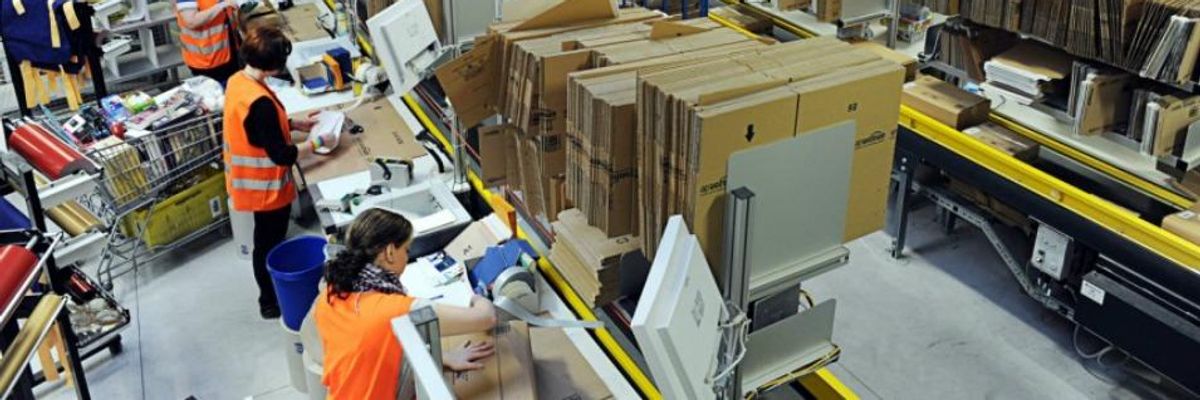Privacy advocates and labor groups raised concern Thursday over retail giant Amazon's newly-secured patents for a wristband that could be worn by warehouse employees, keeping track of where workers hands go while they're packing delivery boxes.
In the latest productivity-minded move by a company that's notorious for enacting stringent policies to ensure that workers meet targets, Amazon's designs outline a wristband that would vibrate when the wearer's hand moved incorrectly.
According to patent documents, obtained by GeekWire, the bracelet could be used to direct a worker to the correct inventory while packing products into delivery boxes:
Existing approaches for keeping track of where inventory items are stored...may require the inventory system worker to perform time consuming acts beyond placing the inventory item into an inventory bin and retrieving the inventory item from the inventory bid... Accordingly, improved approaches for keeping track of where an inventory item is stored are of interest.
Amazon has not announced plans to introduce the wristbands in warehouses at this point, but the news of the patents comes after several other measures the company has taken to track its employees.
In order to hit targets for packaging and delivering orders, warehouse workers are reportedly subjected to timed bathroom breaks and electronic timers to monitor how many boxes they pack per hour during their 55-hour workweeks.
"Amazon's new idea goes to extremes to treat workers like robots... Meanwhile, CEO Jeff Bezos is the richest person on the planet."--Ben Norton, journalist
In 2016, a BBC study also found that delivery workers were routinely speeding and falling asleep at the wheel in order to meet delivery goals.
Critics argue that by introducing the wristbands in its warehouses, Amazon would be forcing employees to work as dexterous robots the company doesn't yet have.
"For Amazon, I believe technologies like this are largely a stop-gap measure until robots can take over more of the work. Currently, workers need to do the picking of packages because the robots don't yet have the necessary dexterity," Martin Ford, author of Rise of the Robots: Technology and the Threat of a Jobless Future, told the New York Daily News.
On Twitter, a number of critics slammed the patents and raised concerns about Amazon's surveillance of its employees.

